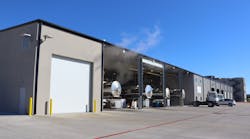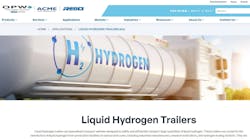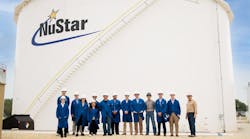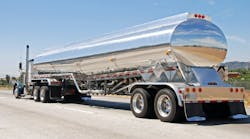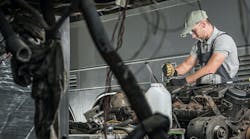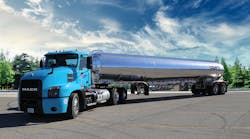American Trucking Associations officials hailed a proposal by Senators Chris Murphy (D-CT) and Bob Corker (R-TN) to raise and index the fuel tax in order to preserve the “user pays” principle and keep the Highway Trust Fund solvent. ATA and other groups have been outspoken in calling for more funding to maintain and restore the US highway infrastructure.
“We have long said that the fuel tax is the fairest, most efficient way to fund our nation’s infrastructure and this practical, bipartisan proposal put forward by Senators Murphy and Corker would put the Highway Trust Fund on the path to solvency and provide the revenues we need to maintain a 21st Century transportation network,” said ATA President and CEO Bill Graves.
The Murphy-Corker proposal would raise the fuel tax six cents a year over two years, then index the tax to the Consumer Price Index in order to retain its purchasing power. The fuel tax has not been raised since 1993, over which time the revenue it generates has lost nearly half its buying power.
“ATA believes a well-funded, well-maintained transportation system is essential for safety and for economic growth,” said ATA Chairman Phil Byrd, president of Bulldog Hiway Express. “While we have been looking for acceptable alternatives to the fuel tax, we believe it is still the best way to generate the revenue we need to repair and maintain our roads and bridges.”
Dan England, chairman of C R England, former ATA chairman, and chairman of the ATA task force that crafted the association’s highway funding options, said: “This spring, ATA endorsed a package of funding options--including indexing the fuel tax--to bolster infrastructure investment. We are pleased to see Senators Corker and Murphy step forward with a bold vision on how to address our infrastructure needs and we encourage the House and Senate to quickly adopt their proposal.”
The American Society of Civil Engineers (ASCE) also has been calling for more highway funding and it gave the nation's infrastructure a D+ (poor) in 2013. It is a depressing grade, considering the eminent and progressive civil construction schemas that America was once home to. Beginning in the 1980s serious concern arose as to the dilapidated state of America's roadways, tunnels, bridges, dams, waterways, and energy systems, but economic and political conditions have continuously inhibited would-be plans and progress.
Financing gargantuan, inter-jurisdictional projects, such as wide-scale infrastructure re-development is a challenging prospect, especially when the estimated cost of upgrades, according to the ASCE, will require a $3.6 trillion investment within the next six years.
Often, desperation and necessity are the harbinger of innovation. As vital transport and communication networks continue to crack and crumble, innovative financing schemes are being generated, and when mass-scale infrastructure projects become solvent entire markets will re-arrange, as they help allocate the industrial construction materials that will assist in re-defining a nation.
As the logistical climate improves, with relation to large infrastructure projects, it will take sound leadership, financial innovation, and public demand to raise the capital necessary to re-build that which is faltering, according to ASCE officials.
Various financing options, such as tolling, public-private partnerships, a National Infrastructure Bank and programs that encourage private investment, such as TIFIA, its new counterpart WIFIA, and the revival of the Build America Bonds program, are only bolstered by public support and the will of governmental leaders to address the issue of failing infrastructure.
Recently, John K Delaney, (D-MD) co-wrote an article entitled, Crumbling US Infrastructure Needs Money. Delaney has proposed a bill to congress entitled, The Partnership to Build America Act, which is designed to aid in the rebuilding of, "our infrastructure in a fiscally responsible way,"… and "is a private sector driven solution to our public infrastructure needs." Currently, the bill has strong bipartisan support in Congress with 32 Democratic and 32 Republican cosponsors in the House, and seven Republican and six Democratic cosponsors in the Senate.
